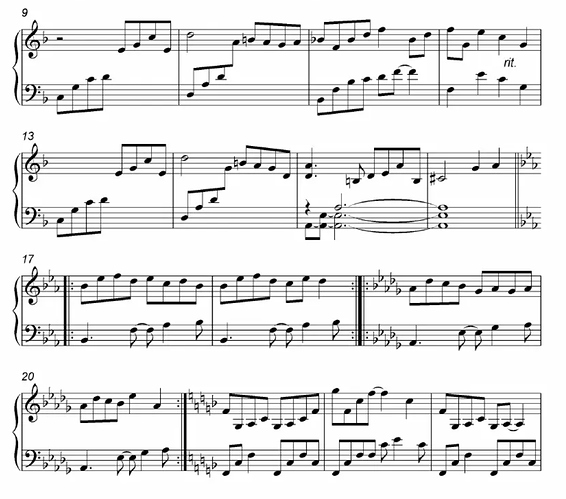WARNING: some rambling below - proceed with caution!
Finally had some time to watch the entire video. And it sure got me thinking - in so many ways! (And, I guess that is one of the intentions of this video)
I really like Adam Neely, and when I “discovered” him around November 2019, his videos really rekindled my passion for music and I credit him for pushing me towards learning a new instrument and getting more serious about playing music again. For this, I will be forever grateful to him (and he will never know  )
)
Lately, it seems to me, however, that he is at a crossroads and perhaps struggling a bit with where he wants to go and what he wants to achieve with his YT channel (and Patreon etc) and, maybe more to the point, who his audience is. To me, it seems like he is almost preparing to apply for a faculty position at one of the major music schools as he is releasing his meticulously crafted and researched “essays” on music. These are scholarly pieces, oral presentations he could give at a conference, and, by golly, he has the ability (and then some) to become a scholar (perhaps more so than the guys at North Texas), but now feels almost trapped in his YT channel… Again, just how it appears to me!
But, who is he really trying to reach with these videos? Is he not - inadvertently - fostering a very similar kind of elitism (albeit of a very different “flavor”) than the one he is making us aware of? Is he mainly talking to that tiny fraction of people who were fortunate enough to enjoy a college education and perhaps even a formal music education? Sure, I learned some new things, and I have to admit that I never looked at music theory and education in that way before. And I certainly appreciate that the way music is taught (also outside of higher musical education) is being questioned, re-thought and innovated.
But: how many of us (average joes) are likely to perform in-depth analyses of musical pieces? How many of us are going deep into North Indian music or Middle Eastern music? How many of us are likely to read any of the books he is referring to? It is not that these are not interesting and potentially rewarding goals, but I think most of us don’t have the time, background and stamina for it. And, really, we are all still struggling with most aspects of 18th century European yadda yadda anyway.
At the end of the day, most of us amateur hacks just want to have fun with playing music and playing together with others, and we most likely never need to bother with overly esoteric musical issues. In fact, we absorb music by listening to what we find; radio, playlists, streaming, this forum, … and we usually never consciously stop and wonder about whether what we hear has roots in classical music, blues, African rhythms or something else. I’d wager most of us have a child-like approach to music - if we like what we hear, we try to mimic/copy it. Sure, there is so much out there we never get exposed to, but how far can you go? How much time and effort can you invest? These are not just rabbit holes (which we all like), these are rabbit chasms 
So, back to my point about where Neely is going? Is he going off the deep end? With videos like this one, there is a feeling that he might… And in the process, he might be losing those of his viewers who just can’t relate to what he is talking about anymore, or who feel that what he says hasn’t got any real (immediate) relevance for them anymore (and my guess is this is the majority of his viewers). Does that mean he should become more “populistic”? Pick up “lighter” topics in music? Compromise on his thoroughness, ambition, and standards? No, I guess not. There are plenty of those out there on YT already. So what should he do?
I think he should take his immense talents of getting to the core of an issue, his knack for being concise and clear (well, mostly), and his ability to first de-construct an issue and then put it back together piece by piece, and use those to look at smaller chunks, much more concrete aspects of music (theory) and make them accessible to people without in-depth prior musical education and present them in such a way that the knowledge of theory can be turned into practical know-how that can be directly applied to playing music. For example, he briefly mentioned an approach to improvising based on the lydian scale in this video here. If he could break that down, make it understandable to me and then distill the essence into how-tos, that would be totally awesome.
My apologies for the long rant…

 )
)



